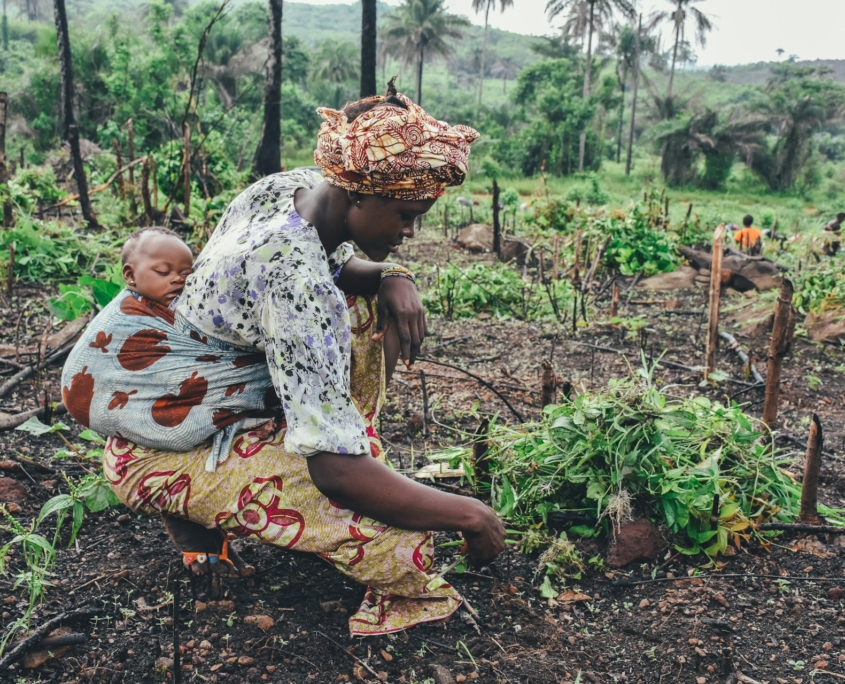Microfinance: Firms Providing Small Loans to Fight Poverty
 Microfinance provides small loans, savings, insurance and other financial services to underbanked individuals, families, entrepreneurs and small businesses that lack access to conventional financial sources. The 2023 Microfinance Social Performance Report by BNP Paribas reports that 156.1 million borrowers globally benefited from these services in 2022. Here are three companies that offer small loans to fight poverty, along with success stories of people who have used these loans to expand their businesses.
Microfinance provides small loans, savings, insurance and other financial services to underbanked individuals, families, entrepreneurs and small businesses that lack access to conventional financial sources. The 2023 Microfinance Social Performance Report by BNP Paribas reports that 156.1 million borrowers globally benefited from these services in 2022. Here are three companies that offer small loans to fight poverty, along with success stories of people who have used these loans to expand their businesses.
KIVA and Rachel’s Story
Kiva offers banking services to the international community, functioning similarly to a crowdfunding platform. As a lender, individuals can browse various projects globally and choose whom to lend to. In 2023, Kiva facilitated loans for more than 190,000 people, distributing more than $176 million with an impressive 96.2% repayment rate. Additionally, Kiva has partnered with Novica, an e-commerce platform that allows people in developing communities to sell their products internationally. This partnership has generated more than $130 million for individuals, enabling them to share their skills and products worldwide and drive tangible change.
Rachel, who grew up attending the Odwira Festival in Abiriw, Ghana, was captivated by the colorful garments and accessories celebrated during the harvest. Inspired, she learned to create similar items from a friend and began selling her wares. Although she experienced modest growth, Rachel sought to accelerate her business. Partnering with Kiva, she received $100 from four donors, which she used to buy raw materials, effectively doubling her production and profit. Rachel now employs others, imparts valuable skills and runs outreach programs that teach underprivileged youths how to make tie-dye and batik at no cost.
Micro-loan Foundation and Lydia’s Story
The Micro-loan Foundation has been empowering women in Malawi, Zambia and Zimbabwe since 2002 by providing business training and small loans. To date, it has assisted more than 450,000 women, enhancing food security, health care access and educational opportunities and boosting women’s roles in their communities. Lydia, a single mother of four and caregiver to her mother-in-law, turned her passion for baking into a sustainable business. With a micro-loan of 500 Kwacha (about $30), she invested in her bakery, quadrupling her daily bread production and significantly boosting her income. This increase allowed Lydia to reinvest in her business, repay her loan and improve her family’s living standards while contributing more to her community.
BRAC and Sharmin Akter
BRAC, originally an NGO in Bangladesh, has evolved to provide small loans aimed at alleviating poverty and promoting financial inclusion. Since 2023, BRAC has disbursed more than $6 billion in loans, mainly focusing on women, who constitute 90% of its beneficiaries. These ongoing efforts empower women and address the root causes of poverty, particularly in urban areas of Bangladesh.
Sharmin, who worked for a decade in a toy factory, acquired valuable skills that she leveraged to start her own business. Her high-quality toys quickly garnered demand, but she struggled to keep up with growth. Realizing the need for investment, Sharmin secured a $3,750 loan from BRAC to purchase 12 new sewing machines. This capital infusion allowed her to expand production by hiring staff and increasing output. At the moment, Sharmin’s business is one of the largest soft toy manufacturers in South-West Dhaka.
Looking Ahead
Small loans continue to play a crucial role in the fight against poverty and economic empowerment worldwide. Success stories like those of Rachel, Lydia and Sharmin highlight the transformative potential of these financial services. As microfinance institutions like Kiva, the Micro-loan Foundation and BRAC expand their reach, they can potentially create sustainable livelihoods and foster economic growth in underbanked regions.
– Philip Mundy
Philip is based in Bristol, UK and focuses on Good News for The Borgen Project.
Photo: Unsplash
